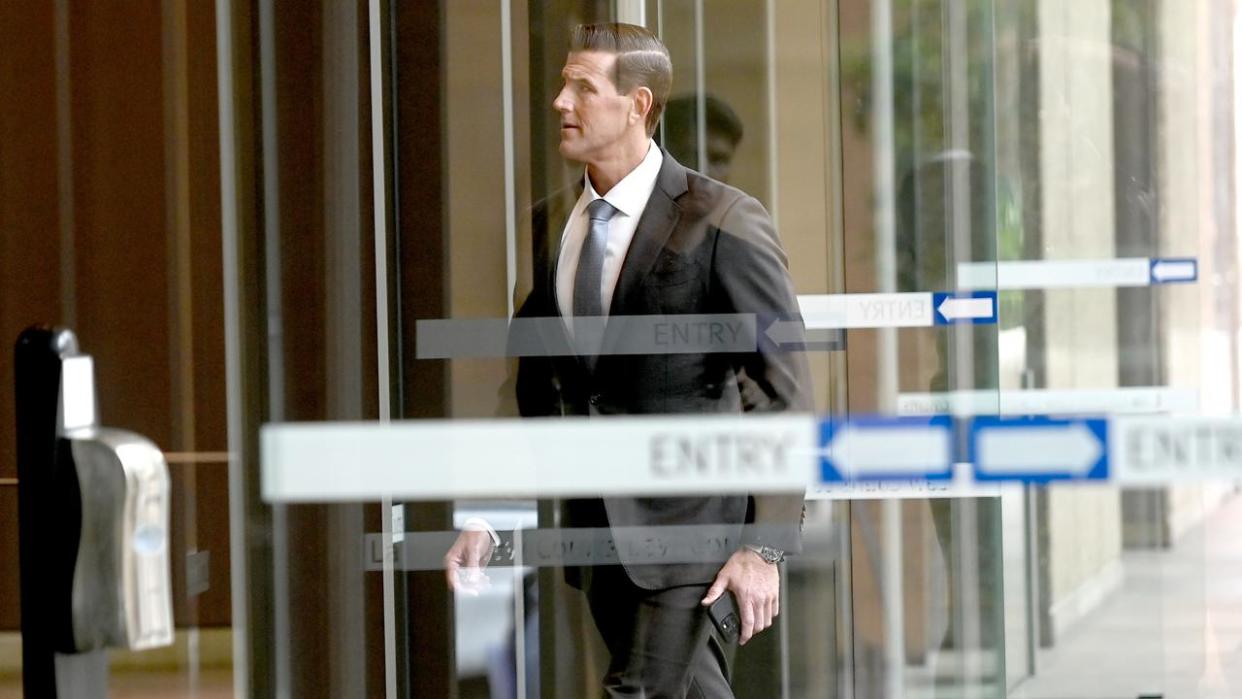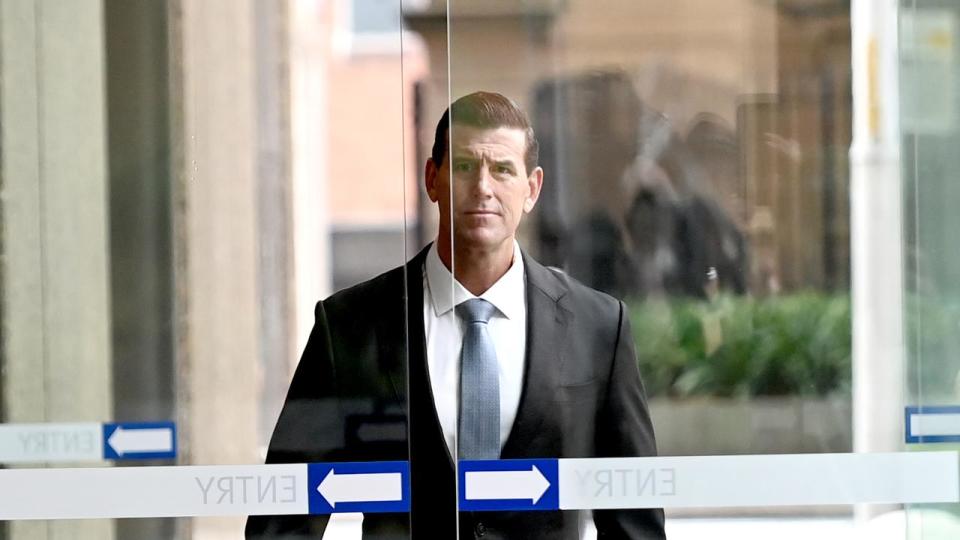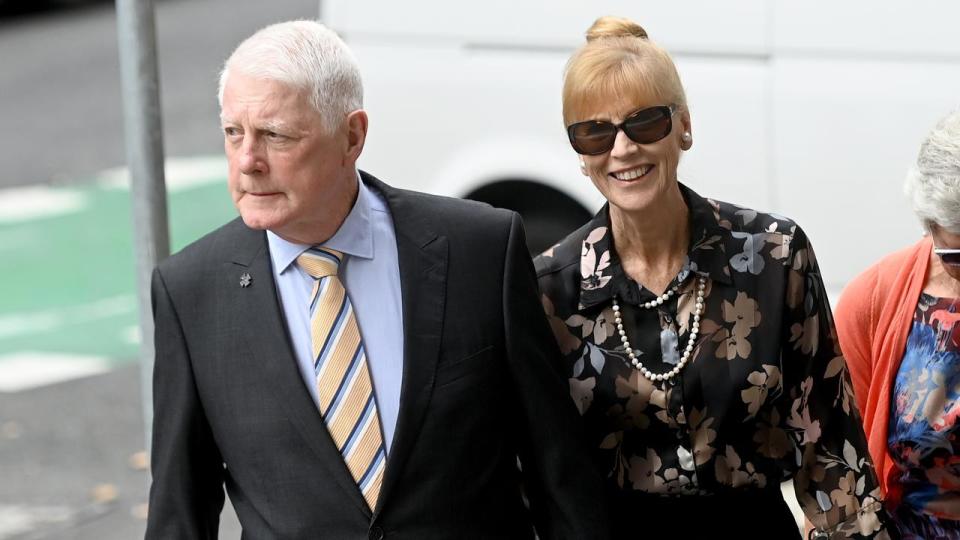BRS begins fight to clear his name

Decorated soldier Ben Roberts-Smith has argued there were inconsistencies in eyewitness accounts to alleged unlawful killings as he attempts to overturn his damning defamation loss, a court has heard.
The Full Court of the Federal Court is hearing a 10-day appeal after Justice Anthony Besanko last year found Mr Roberts-Smith was involved in the unlawful killings of four prisoners in Afghanistan.
Mr Roberts-Smith, who has persistently denied the allegations, argued Justice Besanko erred in his findings and has asked the court to set aside the judgment.
He was not present when the original decision was handed down last year but was in court on Monday, supported by his parents Sue and Len.
Mr Roberts-Smith sued over six articles in The Sydney Morning Herald, The Age and The Canberra Times but Justice Besanko found them to be substantially true.


The proceedings were dismissed after Justice Besanko found the articles proved some, but not all, of the defamatory imputations in a major win for the newspapers.
The judge found the most serious imputations alleged in the articles had been proven and the newspapers upheld the defence of contextual truth for the remainder.
Mr Roberts-Smith’s appeal is being led by high-profile barrister Bret Walker SC, who has argued that the VC recipient was entitled to the presumption of innocence because Justice Besanko did not properly weigh up the gravity of the allegations.
“It can confidently be said that in the circumstances of a very highly-decorated member of the Australian Defence Force on active service in operations, the difference between killing in the course of duty permitted by a civilised system of law and killing which is not so authorised, and is therefore not excused by the activities of war, amounts in most systems to murder,” Mr Walker told the court on Monday morning.
“That difference is one which is, of course, at the heart of this case.”


Mr Roberts-Smith is disputing findings relating to allegations that he was involved in the killings of two prisoners at a compound dubbed “Whiskey 108” on Easter Sunday in 2009.
According to the allegations, Mr Roberts-Smith shot one man in the back and directed another soldier to shoot another prisoner.
During his trial, Mr Roberts-Smith argued that the two men were lawfully killed by himself and another soldier at Whiskey 108 and that his version of events were set out in contemporaneous reports by patrol commanders.
Mr Walker said that the alleged execution, and “blooding” of a junior soldier were “so striking and so terrible”, it would have been reported.
“One would obviously expect there to be either a report there and then from responsible members of the ADF about it,” Mr Walker said.
“Or some understanding by the court why that didn’t happen which would involve ... extremely serious matters institutionally. There is, in our submission … no finding of fact by his honour … to explain that unavoidable implication.”
Mr Walker argued there were inconsistencies in eyewitness accounts to the alleged killings at Whiskey 108, including one soldier who said he could not remember seeing the body of one of the Afghan men.
“But on any view of the case against us, if it has any cogency, the execution of EKIA56 (one of the Afghan men) occurred shortly after he came out of the tunnel and no one is suggesting that he was then spirited away,” Mr Walker said.
“On any view of it, if the respondent’s case was correct, he would have been close by and unable to be missed.
“So there are these anomalies which reduce the reliability of the evidence relied upon for this occurrence.”
Justice Besanko also found allegations Mr Roberts-Smith murdered Ali Jan at Darwan in September 2012 to be substantially true, where Mr Roberts-Smith allegedly kicked the detained shepherd off a cliff while he was handcuffed.
Justice Besanko said Ali Jan was injured before he was dragged to a cornfield.
He found Mr Roberts-Smith directed another soldier named Person 11 to drag the farmer and shoot him as he stood in the cornfield.
His lawsuit was bankrolled via a loan from Seven West Media chairman Kerry Stokes.

Justice Besanko did not find Mr Roberts-Smith had committed domestic violence on a former mistress, but ultimately found it did not further harm his reputation given the findings of murder, and dismissed the case.
The legal costs for both sides in the trial have been estimated to be over $30 million.
Nine is being represented by barrister Nicholas Owens SC, who led their defence during the trial.
The appeal is being heard by Justices Nye Perram, Anna Katzmann and Geoffrey Kennett.
The hearing continues on Tuesday.


